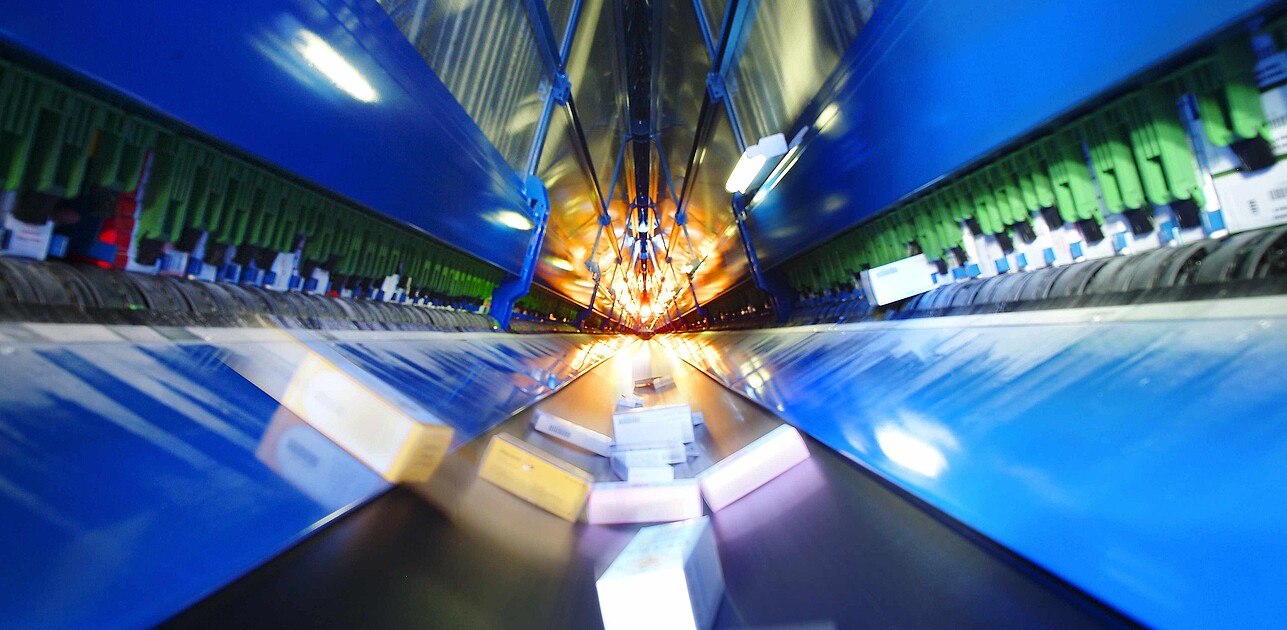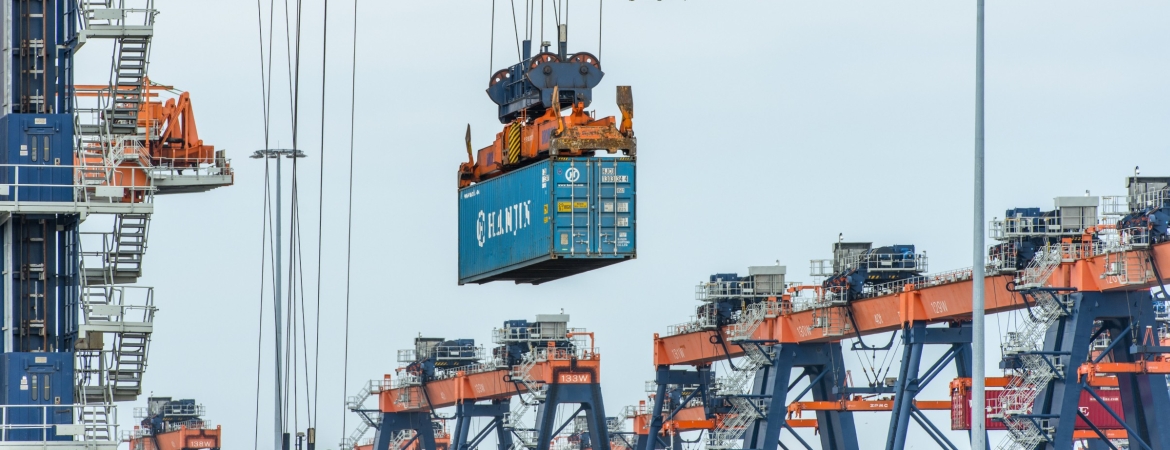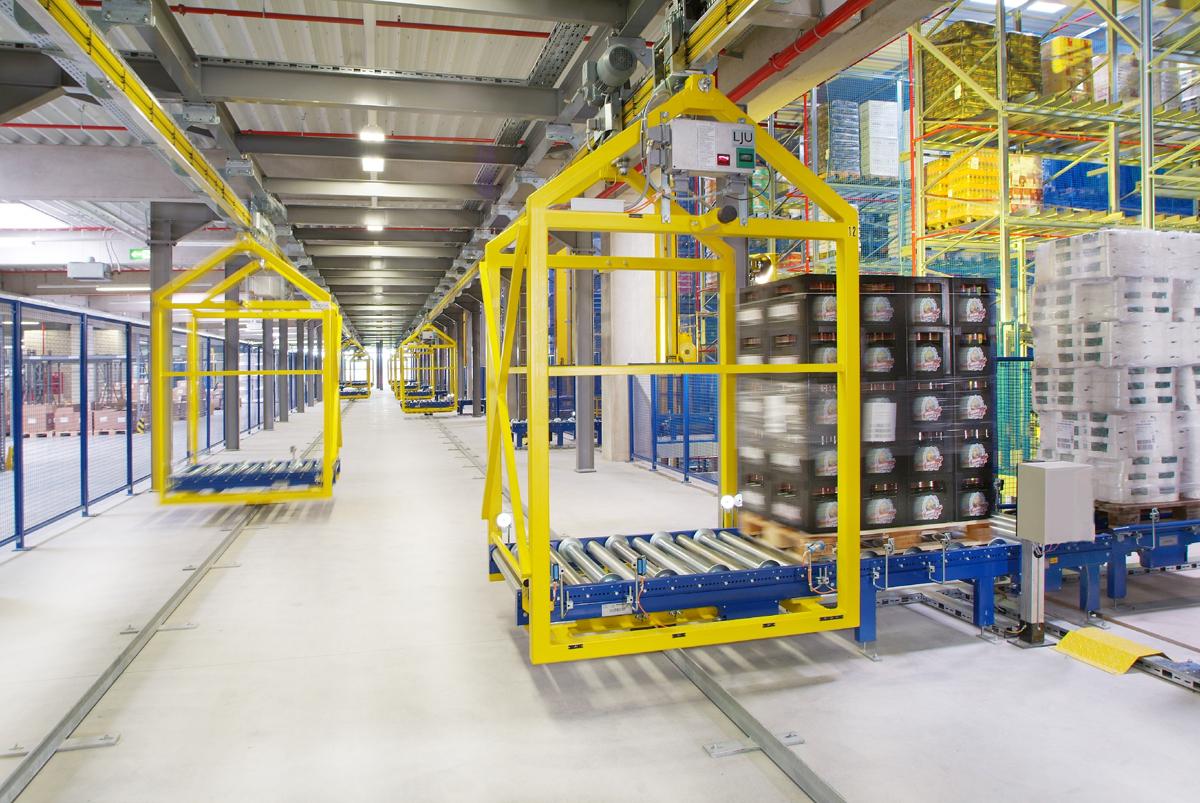

Reading time: 7 minutes
By RSM Case Development Centre
In addition, the land available for warehouses has become scarce, and many warehouses must operate 24/7 to keep up with the demand. These factors have given warehouse automation a big boost. During the last decade, warehouses have already become more and more robotised.
Research in logistics and operations management at RSM shows that optimising warehouse robotic systems can provide important economic and service benefits to businesses, employees and customers.
Led by Professor René de Koster, RSM’s research team includes Dr Debjit Roy, Dr Jelle de Vries, several PhD candidates, and visiting researchers. The team has been devoted to studying warehouse and terminal robotics management since 2016 with the objective of modelling potential benefits and deployment strategies for the use of robots in warehouse and terminal environments. Projects were carried out in close co-operation with the Material Handling Forum (MHF) and companies such as Vanderlande Industries, Probotics, CEVA, and DHL.
The research focused on systems with autonomous mobile robots and cobotic systems, in which humans work alongside robots collaboratively. The team looked at both behavioural and analytical or mathematical models to optimise the design, deployment and use of such systems, and the deployment of people working with them.
In the first research stream, the team studied autonomous mobile robots – smart automated vehicles that can efficiently move loads from storage locations to a depot. They enhance throughput flexibility, and can be deployed on demand. One popular system, particularly in e-commerce retail, is the shuttle system, in which autonomous robots (‘shuttles’) can operate at different heights within a storage rack.
Configuring such systems is complex, because performance depends on many design factors, including the dimensions (length, height, and number of racks), dwell point strategies of the shuttles, or rack division in shuttle work zones. A second popular system is the robotic mobile fulfilment system (RMFS), where robots continuously move the storage racks. The team developed new performance analysis models to analyse throughput performance and optimise these design factors. In particular, new, semi-open queuing network models pushed the state-of-the-art modelling methodology and provided highly accurate estimates of key performance indicators.
The team also developed models to optimise operational strategies, for example, on how to allocate inventory among the pods, how and when to charge the robots, or how to dynamically assign robots or to decide on the number of pick stations.
In a second research stream, the team studied whether and how robots and human pickers can collaborate in the item pick and order fulfilment process. In cobotic systems, humans are deployed alongside the robots to retrieve the items from the storage shelves. The team developed both performance estimation and dynamic picker and robot deployment policies. They observed that dynamic deployment policies can substantially increase system throughput. The team not only developed models, but also carried out experiments with human-robot collaborative strategies in a warehouse laboratory. They found that scenarios in which the picker leads the robot leads in many cases to higher productivity than when the robot leads the person. This productivity difference is also contingent on the picker’s personality. The team believes bigger gains are possible by analysing the integrated system – both upstream storage and downstream order picking together, which is their current focus.
This research has generated significant results. Since 2016, over 30 academic papers based on the research have been published in top journals including Transportation Science, European Journal of Operational Research, and IISE Transactions. The team edited two special issues on the topic in Transportation Science (2018) and Production and Operations Management (2022). De Koster was mentioned in a paper by Siddique et al., (2018) as ‘the most influential researcher’ in material handling. The models the team designed were adopted by material handling researchers and consultants to analyse other automated system variants, associated research questions, and operating policies.

The team’s research has received several government and industry sponsorships, including a €80,000 sponsorship from the BOM (Brabant Development Organisation on Advanced Manufacturing and Logistics), and a €70,000 sponsorship from the MHF and the Netherlands Organisation for Scientific Research (NWO) for the ‘Man and Robot in the Warehouse’ project. In 2019, NWO granted another €550,000 for the team to carry out a follow-up project ‘Sharehouse: collaborative robots’ with a cash contribution of €500,000 for the entire €3M project by Vanderlande Industries, City of Rotterdam, and other companies.
Many of the research results can readily be implemented and some have already been applied. One result showed that rack-climbing robots (‘vertical systems’) are beneficial compared to shuttle-with-lift combinations, and Exotec Solutions is using this finding in its Skypod™ system. Similarly, the research on compact Autostore™ shuttle systems showed that shared storage has more benefits than dedicated storage. Informed by this research, all recent installations have adopted shared storage, and in particular, the research on dynamic worker zoning with cobotic systems (robotic devices used to interact and co-operate with humans) has drawn wide attention from the industry. In a recent paper, the researchers showed that robot sorting with appropriate layout and operating policies outperforms traditional cross-belt sorting. As a result, more robot sorting implementations are now used, for example, a system installed by Vanderlande Industries at the Rotterdam The Hague Airport.
Prof. De Koster has taken on an active role in the industry. He is a member of the European Logistics Association's R&D board, member of the BVL Scientific Advisory Board, and founder of the MHF. By collaborating with the industry, particularly companies on the MHF platform, his team can work on the latest advancements and develop innovative applications of these autonomous robotic systems. Consequently, the team has the first-hand knowledge and experience to share with university students and business professionals in logistics and supply chain management.

De Koster teaches at all levels at RSM: bachelor, master, post-experience and executive education. He holds the honorary Francqui Chair for Hasselt University since 2018. He co-authored the prize-winning teaching cases Vanderlande Industries: parcel and postal predicaments and Managing lean success: A warehouse balancing act with the RSM Case Development Centre, which won the EFMD case writing competitions in 2014 and 2021, respectively. Dr Debjit Roy designed the MSc elective in Managing Performance of Manufacturing and Service Systems, which received the RSM Innovative Teaching Award in 2019. In addition, the team set up a new warehouse robotics lab in 2018 at the STC, a vocational school for logistics education, for teaching, demonstrating and experimenting with robots and VR/AR.
The researchers frequently give plenary presentations at conventions and industry events, and are interviewed by national and international media for logistics professionals, such as the Chartered Institute of Logistics and Transport, LogistiekProfs, and WarehouseTotaal. The cobotics topic is particularly interesting for the industry as well as its employees. Companies that want to use cobots face several issues, for example how investments in robots can be more financially attractive, how to organise the processes with human and robots working together, and what robotisation actually means for the employees in the warehouse. The team brings its insights to these companies, and they explore the best solutions together.
RSM research into warehouse robotics management keeps abreast of the latest regional and global challenges. It not only addresses important issues like optimising the design of robotic systems and improving the cost-benefit of deploying such systems, but also tackles the fundamental question of how human labour can have its value in an increasingly automated world, and how to design work processes that are suitable for robots as well as humans.